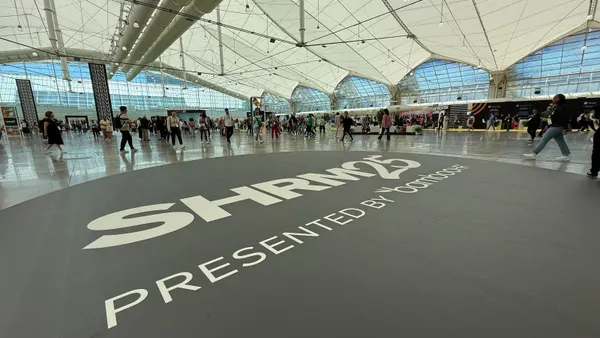Dive Brief:
- Time saved on commuting has led to healthier habits among those who now have a hybrid work style, a survey of 2,000 hybrid workers by International Workplace Group found.
- Sixty-five percent of surveyed workers said they had more time for exercise, and a little over half said they have more time for cooking healthy meals. Workers also reported getting more sleep — an average of 71 more hours, or nearly three full days, per year. Nearly 4 in 5 reported greater productivity since before 2020, citing less work-related stress and more time to relax after work as the reasons.
- “There is no doubt that hybrid working has facilitated some major health benefits,” Dr. Sara Kayat, a doctor who partnered with IWG on the study, said in a press release provided to HR Dive. “A balanced diet, physical activity and good quality sleep are the bedrocks of a healthy lifestyle, and this data suggests that each is more widespread due to the extra time afforded by a hybrid working model.”
Dive Insight:
As a return to office remains in full swing for many companies — and as others continue to debate whether and how to structure a permanent hybrid work solution — employees have weighed in on their level of satisfaction with shifting arrangements.
The data is not cut-and-dried. On one hand, for example, flexibility remained a top benefit for workers following the beginning of the pandemic, becoming a driving factor in the great resignation. And even amid tougher economic times, employers cracking down on flexible work arrangements have had an impact; the number of respondents to a recent Kizen survey reporting that lack of flexibility was a source of dissatisfaction tripled between 2022 and 2023.
On the other hand, some members of the workforce have reported feeling left behind by arrangements that overemphasize working from home. A recent Glassdoor report found that entry-level workers least preferred working from home, with a Glassdoor economist suggesting the setup can inhibit an engaging company culture and make it difficult for early-career workers to gain a foothold in new organizations. Studies have found Generation Z in particular craves on-site experience.
Lack of co-worker camaraderie may increase feelings of isolation as well; a recent study from the Integrated Benefits Institute found that remote and hybrid workers reported a higher rate of depression and anxiety.
How do employers address the variety of preferences among their workers? Businesses are still experimenting with approaches to hybrid work that can build a strong company culture while helping workers maintain the type of well-being benefits that IWG reports.
In late 2021, the professor who coined the term “great resignation,” Anthony Klotz, told HR Dive that innovative flexibility was the next workplace frontier. He recommended employers take a personal approach. It’s important for organizational leaders to have conversations with employees about what flexibility means to them, he said.














